Homer is the name ascribed by the ancient Greeks to the legendary author of the Illiad and the Odyssey, two epic poems which are the central works of ancient Greek literature. The Illiad is set during the Trojan War, then ten year siege of the city of Troy by a coalition of Greek kingdoms. The Odyssey focuses on the journey home of Odysseus, king of Ithaca, after the fall of Troy. Take a look below for 30 more interesting and awesome facts about Homer.
1. Many accounts of Homer’s life circulated in classical antiquity, the most widespread being that he was a blind bard from Ionia, a region of central coastal Anatolia in present day Turkey.
2. The Homeric Question, concerning by whom, when, where and under what circumstances the Illiad and Odyssey were composed, continues to be debated.
3. From antiquity until the present day, the influence of the Homeric epics on Western civilization has been great, inspiring many of its most famous works of literature, music, art and film.
4. The Homeric epics were the greatest influence on ancient Greek culture and education. To Plato, Homer was simply the one who, “has taught Greece.”
5. He was the son of Telemachus and Epikaste, and is believed to have been a story teller and a court singer.
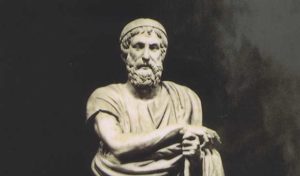
6. Although there are various accounts of when Homer lived, he’s credited as the first and the greatest epic poet, and the author of Europe’s first known literature.
7. It’s believed that Homer lived in Iona, based upon his dialect but others suggest that he lived on the island of Chios.
8. It’s believed that Homer was blind, but proof one way or the other doesn’t exist.
9. It’s said that Homer’s Odyssey inspired many further highly acclaimed pieces of literature including Inferno by Dante Alighieri, Don Quixote by Miguel de Cervantes, Heart of Darkness by Joseph Conrad, The Wonderful Wizard of Oz by L. Frank Baum and Ulysses by James Joyce.
10. In Plato’s work Republic, Homer is portrayed as the leader of Greek culture.
11. In Aristotle’s work Poetics, he refers to Homer as unique when compared to the poets of his time, in that he focused on a single theme.
12. About 50% of all of Homer’s work was in the form of speeches.
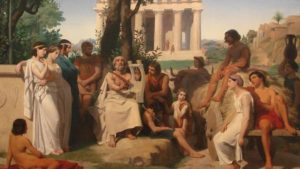
13. Homer is credited with the Homeric Hymns. These poems range from only a few lines to hundreds, and are composed with the same dialect as Illiad and Odyssey. His other notable work includes Epic Cycle, a book of poems about the Trojan War.
14. Scholarly studies of Homer and his work as some of the oldest, dating back hundreds of centuries.
15. In Homer’s time, his poetry would have been spoken aloud as opposed to being written down. It was only later that they would have been written down. It’s believed that Homer’s poems were recorded soon after the alphabet was invented.
16. There is a statute of Homer in Munich, Germany, outside the Bavarian State Library.
17. In the British Museum, there is a marble relief created by Archelaus of Priene, believed to be from the third century BCE, called the Apotheosis of Homer. It was found in Italy but it’s believed to have been sculpted in Egypt.
18. Homer is believed to have died on the island Ios, but the year is unknown, just as his exact date of birth is unknown.
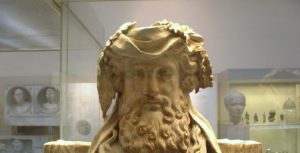
19. The name Homer sounds like Greek words meaning “hostage” or “blind”, which may have influenced the characterization of Homer as a former slave that became a blind bard.
20. In the Hellenistic period of Greece, some cities dedicated shrines to Homer.
21. In his introduction to Robert Fagles’ translation of The Illiad, Bernard Knox suggests that Homer most likely did exist and that The Illiad, at least, was written in its entirety by one author before it was performed.
22. The Byzantine scholars such as Eustathius of Thessalonica and John Tzetzes produced commentaries, extensions and scholia to Homer, especially in the 12th century.
23. The Homeric epics are written in an artificial literary language or “Kunstsprache”, which is only used in epic hexameteric poetry.
24. Homeric Greek shows features of multiple regional Greek dialects and periods, but is fundamentally based on Ionic Greek, in keeping with the tradition that Homer was from Ionia.
25. The first printed edition of Homer was produced in 1488 in Milan.
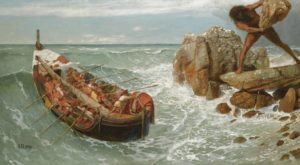
26. In antiquity, it was widely believed that the Homeric poems were collected and organized in Athens by the tyrant Pesistratos, in the famed Pesistratean recension.
27. After the establishment of the Library of Alexandria, Homeric scholars such as Zenodotus of Ephesus, Aristophanes of Byzantium and in particular Aristarchus of Samothrace helped establish a canonical text.
28. The orally transmitted Homeric poems were put into written form at some points between the 8th and 6th centuries BC. Some scholars believe that they were dictated by the poet.
29. Both of the Homeric poems begin with an invocation to the Muse. In the Illiad, the poet invokes her to sing of, “the anger of Achilles,” and, in the Odyssey, he asks her to sing of, “the man of many ways.”
30. It’s believed that most of Homer’s works were passed to the next generation through oral tradition.

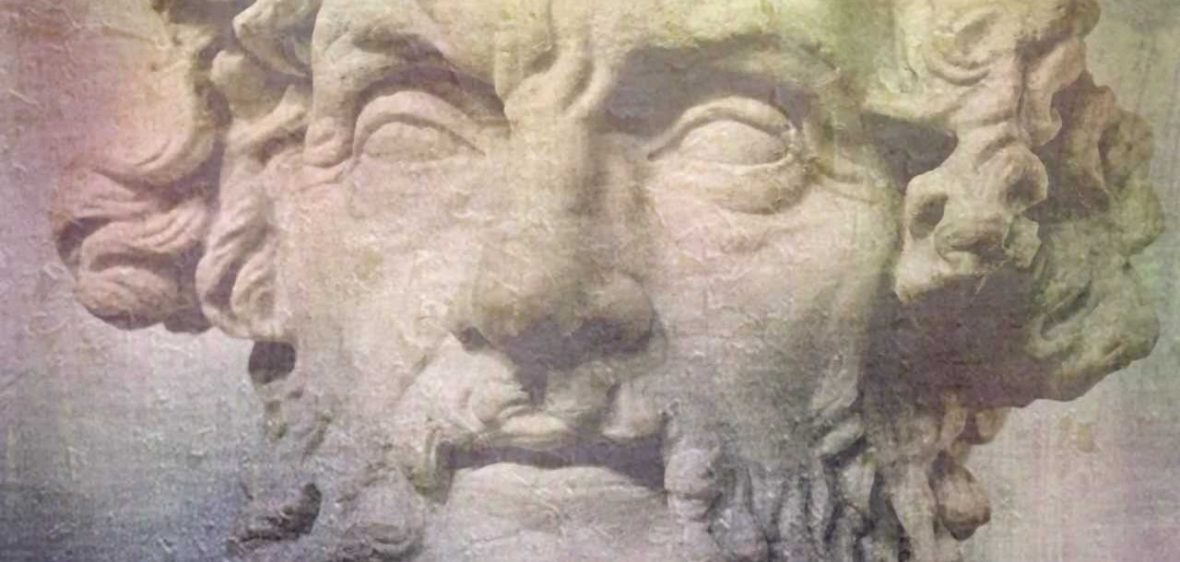



4 Comments
Pingback:
June 14, 2018 at 12:49 pmPingback:
July 2, 2018 at 12:00 amPingback:
July 24, 2018 at 1:16 amPingback:
July 31, 2018 at 2:32 am